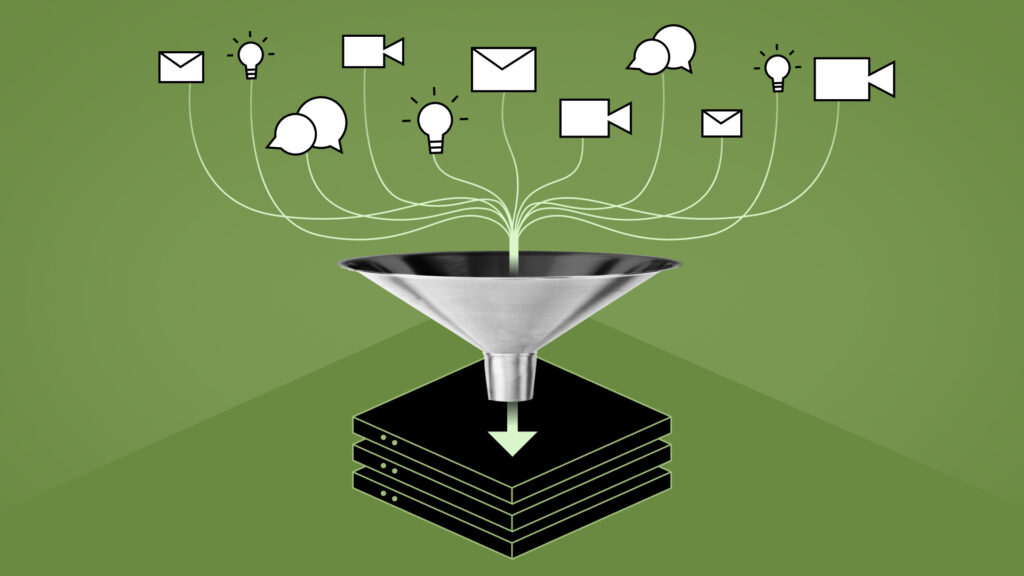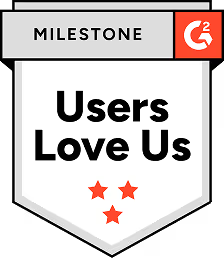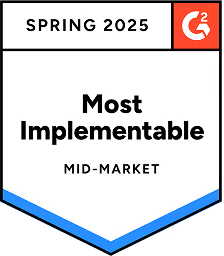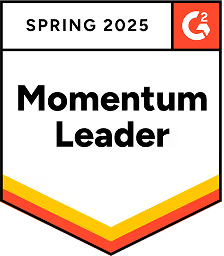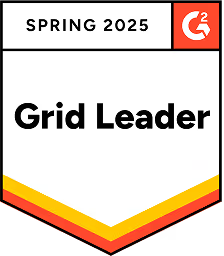6 Reasons ChatGPT Can't Hack Your Sales Process

ChatGPT is an artificial intelligence (AI) chatbot developed by OpenAI. It is built on top of OpenAI's GPT-3.5 and GPT-4 large language models (LLMs). Generative AI models like these, and the subsequent applications that sit on top of them such as ChatGPT, have shown tremendous potential in various business applications since the launch of ChatGPT in November 2022.
While the impact is being observed notably in the customer service and marketing space, when it comes to using AI to improve your sales process, ChatGPT might leave much to be desired.
In this article, we will explore six limitations of using ChatGPT as an AI assistant for sales teams.

1. General Data Sets
GPT-3.5 and GPT-4 large language models are among the most advanced language models currently available, and they are designed to handle a wide range of tasks, from language translation to creative writing.
However, they are general-purpose models, meaning they are not specifically designed for sales and marketing applications that require more nuanced language for efficacy.
Sales conversations require a unique tone and voice, and the language used by frontline team members must align with the company's brand and messaging. So while these models can process text and generate responses, they are not customized to handle the particular needs of a B2B sales and marketing team, ones that write with very specific postures.
Additionally, B2B sales often require targeting specific personas, with tailored content that aligns with each buyer's unique needs and pain points.
This level of customization is not possible with general-purpose language models like GPT-3.5 and GPT-4. These models are trained on vast amounts of general data, and while they can understand the language and context of the conversation, they may not be able to accurately reflect the specific tone, voice, and messaging that are critical in your sales conversations.
B2B sales teams require customized language models that can marry the vast amount of data points from general models with company-specific inputs such as tone, voice, persona-specific messaging, messaging structure, and more, to deliver more accurate content outputs that require less editing.
2. Lack of Industry-Specific Knowledge
The lack of industry-specific knowledge can pose a challenge for ChatGPT when it comes to providing customized information to prospects and customers.
ChatGPT is a generative AI language model that is not designed to specialize in any particular industry or domain. As a result, it may not be able to provide accurate and relevant information that is specific to a particular industry, product, or service.
For example, if a sales team is trying to sell software products and services to a company in the finance industry, ChatGPT may not be able to provide detailed enough information about the regulations and compliance requirements that are specific to the finance industry to get someone to respond to the messaging.
This lack of industry-specific knowledge can lead to misunderstandings, misinterpretations, and inaccuracies, which may affect the credibility and reliability of the sales outreach.
To overcome this challenge, sales teams require AI solutions that can be trained to their industry and product offerings. Industry-specific AI solutions can provide more accurate and relevant information that is tailored to a specific industry, product, or service.
While ChatGPT can be useful for providing general information and answering common questions, it may not be the most effective solution for providing industry-specific content outputs. Sales teams should consider using AI solutions that are customizable, and able to be tailored to their industry and product offerings to ensure that they deliver valuable, contextual experiences to their clients.
3. Unstructured Prompts
One major challenge of using ChatGPT for sales outreach is that its output relies on the quality of the prompt used by the creator, which can be a challenge for people not well-trained in great prompt execution.
This means that sales reps using ChatGPT to write emails, sequences, InMail messages, or other types of outreach will need to learn how to prompt the tool with the proper inputs before it produces anything usable. By the time it takes to develop a well-structured prompt to deliver a near edit-free output, it's often quicker to just create the content you want from scratch.
For example, if a sales rep wants to use ChatGPT to generate a tailored email to a prospect, they need to provide the AI with clear instructions on the topic of the email, the desired tone and language, any relevant details about the prospect's needs and preferences, a CTA and more.
Learning how to properly prompt ChatGPT can take time and effort, and there is no guarantee that the learning curve involved will pay off.
Moreover, there is a risk that the AI-generated content may not meet the desired quality or level of customization, which could negatively impact the sales rep's success. For example, if the AI generates an email that is not relevant to the prospect's needs or interests, or that uses language that is off-script or confusing, it could harm the sales rep's relationship with that prospect and their perception of the brand.
To overcome these challenges, sales reps may want to consider AI platforms that have more built-in prompts to provide more targeted and tailored content outputs. These solutions may use pre-built templates or prompts that are specific to the sales rep's industry or product offerings, making it easier to generate high-quality, on-brand content quickly and efficiently.
By leveraging these tools, sales reps can streamline their outreach efforts and focus on building strong relationships with their prospects and customers.
4. Limited Understanding of Emotions
One of the limitations of using ChatGPT in sales is that it may not be able to pick up on customer emotions, which can be crucial in sales. A skilled sales rep can detect when a customer is uncertain, hesitant, or excited and adjust their approach accordingly.
For example, if a sales rep senses that a customer is hesitant about making a purchase, they might use a different tone or language to reassure the customer and address their concerns.
AI tools that can analyze the DISC profile of a buyer, or their preferred communication preferences, can be invaluable in guiding sales reps' communication strategies. For instance, the DISC profile categorizes people into four different types: Dominant, Influential, Steady, and Conscientious. Sales reps can use this framework to understand a customer's communication style and tailor their outreach to meet the customer's needs.
Similarly, understanding a customer's preferred communication channels, such as email, phone, or social media, can help sales reps personalize their outreach and improve their chances of success.
While ChatGPT may not be able to pick up on these nuances of customer emotions and preferred communication styles, other AI solutions can. For example, some AI tools use sentiment analysis to detect a customer's emotional state based on their language and word choice.
This can provide sales reps with valuable insights into the customer's mindset and help them adjust their messaging and tactics accordingly.
Overall, while ChatGPT can be a useful tool for generating content, it may not provide the level of emotional intelligence and customer understanding that sales reps require to have the content hit home.
By leveraging AI tools that can analyze customer emotions and communication preferences, sales reps can improve their communication strategies and get more at bats with their prospects.
5. Limited Personalization
While ChatGPT is excellent at generating text, it has limited ability to personalize messages to individual customers.
The onus is on the user to provide data on the prospect to ChatGPT as an input. But even then, ChatGPT is not optimized to write sales emails according to the best practices that make a response more likely from someone.
Sales reps need AI solutions that can aggregate data on their prospects, including their job titles, industry, and other digital breadcrumbs they leave online, and use that information to create highly personalized and relevant messaging. This can be especially critical for sales reps deploying more of a 1:1 outbound motion for high-value prospects.
For example, suppose a sales rep is working with a prospect who has been exploring a company's website for the past few weeks but has yet to make a purchase. The sales rep can use an AI tool to gather data on the prospect's website behavior, and couple it with relevant information like a recent Tweet or LinkedIn post of theirs, and combine that to craft highly personalized and relevant messaging sure to get a response.
By leveraging AI solutions that can analyze data and generate highly personalized messaging, sales reps can increase their chances of successfully engaging prospects in a 1:you experience that drives conversions.
Try Regie.ai's Chrome extension to help you write hyper-personalized sales emails at scale.
6. No Analytics & Reporting
Analytics and reporting are important views for sales reps to track the performance of their outreach efforts and make data-driven decisions to improve their strategies.
However, ChatGPT doesn't offer any reporting or analytics features to provide insights into the performance of the generated content.
Sales reps need to know how their outreach efforts are performing, what their open rates and response rates are, and which messaging strategies are resonating with their prospects. They also need to know which prospects are engaging with their content and which ones are not.
Without analytics and reporting, sales reps may be unable to track these important metrics, which can impact their ability to improve and optimize their outreach efforts.
Sales-specific AI platforms that integrate with sales engagement platforms offer reporting and analytics features that can provide reps with critical insights into their outreach efforts, including what AI-generated content is resonating, and if not, areas for improvement.
Having access to this information can help sales reps make data-driven decisions about their outreach strategies, make adjustments to their messaging, and improve their overall performance.
By using AI tools that offer analytics and reporting features, sales reps can not only gain a leg up in terms of content creation, but they can gain a deeper understanding of adjustments to make in their content and messaging to improve their sales success.
ChatGPT and the sales rep
While ChatGPT can be a useful tool for businesses in various industries, it may not be the best option for sales reps looking to use AI to improve their sales workflows and increase productivity specifically.
ChatGPT's limitations in data sets, industry-specific knowledge, prompt customization, tech stack integration and reporting, personalization, and emotional intelligence may hamper its effectiveness for sales teams, even if on the surface it seems promising.
As such, reps can either continue to rely on their own expertise and skills in this critical area of sales development or they can consider alternative AI platforms, like Regie.ai, specifically designed for deep application within sales workflows.
By combining human intuition and relationship-building skills with AI-powered insights and automation, sales teams can drive greater success and stay ahead in today's competitive business landscape using AI.
Deliver relevant sales messaging in seconds using the only Generative AI platform designed for enterprise sales teams. Schedule your Regie.ai demo today.
FAQs
Read more posts
View all BlogsNeed more help?
If you still have questions, make sure to check out our Help Center: there, you'll find all the tips & advice you'll need to get your team up & running with Regie.ai.

